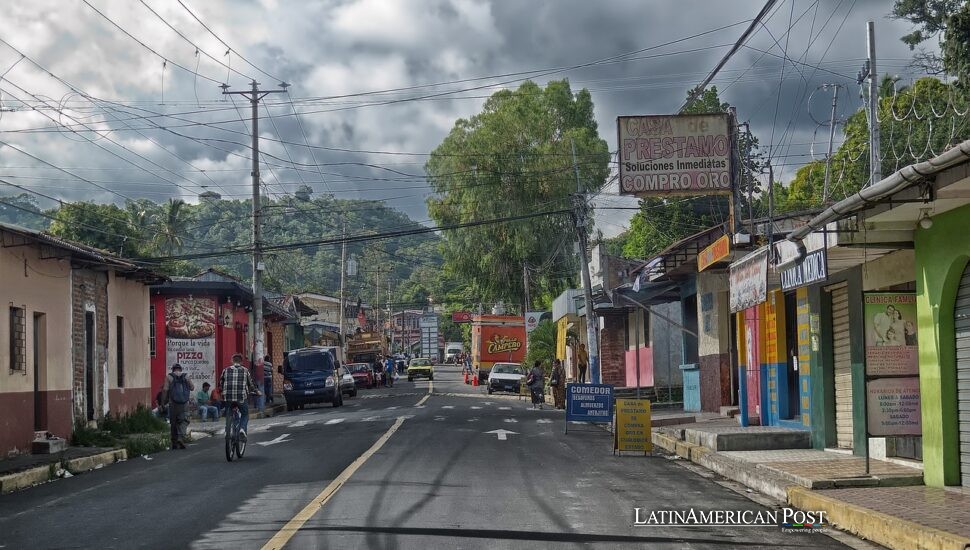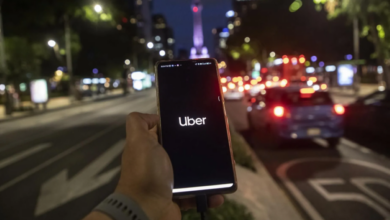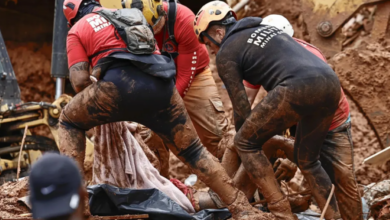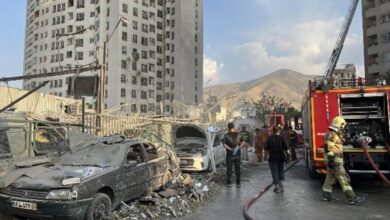El Salvador's Leadership Ignites Hope Across Latin America Today

Once a perilous place for crime, El Salvador is now the region’s safest country under President Nayib Bukele. This opinion piece defends Bukele’s decisive anti-gang actions as a leading example for Latin America ‒ highlighting big successes and lasting popularity.
The Depth of El Salvador’s Transformation
Nearly a decade ago, El Salvador stood at the brink of implosion. Headlines frequently cited the country’s staggering homicide rates, which repeatedly topped global charts. The horrific tally once included more than 2,000 murders per year, reaching over 100 homicides per 100,000 inhabitants—a figure so high that many citizens refused to leave their homes after sundown. Fear dominated everyday life in a problematic way for outsiders to grasp fully. With so many neighborhoods under the effective control of MS-13 or 18th Street gangs, residents faced daily extortion, random violence, and routine kidnappings. Businesses that refused to pay protection money were burned or threatened. Many families saw relatives move north because they felt desperate to escape endless danger and poverty.
As 2025 begins, El Salvador’s situation looks very different from a few years ago. Government data shows a sharp drop in killings, falling from thousands each year to just 114 in 2024. This shift is monumental: homicide rates are now a fraction of those in countries like Mexico or Jamaica. Observers can scarcely believe how swiftly the climate of terror subsided. The man behind this dramatic turnaround, President Nayib Bukele, undertook one of the most forceful anti-gang campaigns in Latin American history. Over the past three years, the government has imprisoned countless suspected criminals—men and women, many heavily tattooed with gang insignias. With states of emergency greenlit by Congress, the administration deployed soldiers and riot police into areas once deemed “no-go” zones.
While critics decry human rights concerns, and no one denies there have been wrongful detentions, one must weigh these issues against the existential threat posed by gangster power. Latin America’s repeated struggle with public safety is well documented: from Brazil’s favelas to Honduran border towns, many nations have allowed lawlessness to fester. Thousands lose their lives every year ‒ this is a high cost. Bukele’s brutal actions sound very authoritarian, but for Salvadorans who once feared leaving their homes, the change feels like an apparent escape from fear. Public happiness shines brightly. Bukele’s approval ratings often go over 90% ‒ most people in El Salvador feel safer and more free to live, work, and enjoy life without fear of sudden violence.
Understanding El Salvador’s Problems
Remember the country’s time after the Civil War to fully grasp the importance of what’s happening now. The 1980s conflict introduced a bloodstained chapter of paramilitary battles, government crackdowns, and mass migration. In the aftermath, the seeds of gang culture took root—often in impoverished neighborhoods or among young men who grew up displaced, fatherless, or traumatized. As MS-13, also known as Mara Salvatrucha, and Barrio 18 expanded, they embedded themselves deeply within local communities. For decades, people endured intimidation that extended beyond petty crime to systematic extortion—where local businesses were forced to pay “war taxes” or face lethal retribution.
Eventually, many felt the nation had resigned to this tragedy, with successive governments lacking the will or the capacity to act decisively. International coverage fixated on horrifying scenes: mass funerals, suburban store owners forced to shutter at dusk, and entire rural areas so menaced that they practically vanished from public life. This environment stripped whole generations of their birthright to hope. For a long time, the reaction from global powers was minimal. Aid packages often vanished into the pockets of corrupt local officials or provided band-aid solutions that never addressed the root of violent hegemony.
Then came President Bukele, a tech-savvy millennial politician who promised to do what many leaders only discussed: prioritize basic safety above all. He took office in 2019 amid a climate of exasperation, vowing to restore order swiftly. Many doubted him—some labeled him a populist, others dismissed him as naive. Either by plan or by daring move, he launched a strict crackdown ‒ changing the justice system to quickly jail gang members. He used the military in new, bold ways ‒ often breaking standard rules. Although this disturbed those who were used to more modern policing, this method strongly connected with people who were tired of living in fear.
The Tipping Point: State of Emergency Declarations
Bukele often declared a state of emergency at the heart of the change, giving special powers to security forces. Bukele argued that normal court processes moved too slowly and were too soft, allowing hazardous criminals to escape. His supporters said the size of the crisis needed decisive actions similar to martial law. Under these powers, authorities could arrest suspected gang members merely for affiliation. If an officer spotted iconic gang tattoos on an individual, that became probable cause for detention. This was an overdue retaliation for many, reversing the dynamic in which criminals had felt untouchable.
At the same time, tragedies inevitably arose: innocent people were occasionally swept up, leading to frantic protests from families and human rights organizations. Some detainees never faced formal charges for months. Government data eventually confirmed thousands of innocent arrests, though many were released upon verification. The idea that about 3.3% of Salvadoran men sit in jail shows how big Bukele’s plan is. A big question is whether these short-term problems, though very sad, are fair enough to bring about a significant change in safety.
People argue a lot. Some countries say the strict actions are a dark breach of personal freedoms. Yet for local Salvadorans, the murder rate’s plunge from over 2,000 to just over 100 dwarfs other considerations. People who once endured daily shakedowns in gang-ruled neighborhoods can now walk free. Markets open earlier; kids attend sports events; families gather at parks. Life has begun to feel normal in ways previously unimaginable.
Unprecedented Gains in Security and Confidence
The latest homicide statistics are staggering in a good way. As of 2024, El Salvador has documented a mere 114 murders—down from roughly 2,000 just five years ago. Applied per 100,000 people, the homicide rate is now a fraction of what it used to be, outshining larger nations like Mexico and overshadowing places long associated with violence, such as Jamaica. While one might question whether the government might underreport data, most independent observers confirm that the change in daily life is too palpable to be a fabrication. Journalists traveling to areas once known for lethal gang presence confirm a near-total shift in local ambiance.
Morale Shift and Economic Prospects
Residents now use the word “hope” with genuine confidence. Once forced to pay triple-digit “protection” fees monthly, business owners speak openly about reinvesting. This fosters a sense of economic revival—a phenomenon in which even prospective foreign investors are taking notice. Regions that once were blocked by tourism operators are opening up, welcoming visitors to scenic beaches, coffee farms in the highlands, and the cultural sites bridging Mayan and Spanish heritages. The tourism ministry is exploring partnerships that would have been unthinkable when murders loomed as daily headlines.
Families overseas ‒ especially in the US ‒ have struggled for a long time with a feeling of deep sadness about their home country. Many escaped years of disorder, often sending money back home, wishing their loved ones might have a brighter future. These groups living abroad feel very proud of their new, safe homeland. From Los Angeles to Long Island, Salvadoran expatriates speak about returning to El Salvador for extended vacations, or even permanently, without the dread of random shootouts or forced relocations by local thugs. Remittances may flow with extra enthusiasm, fueling micro-enterprises that exploit the calmer climate for commerce.
President Bukele’s Soaring Approval Ratings
At home, Bukele’s popularity has soared beyond 90%. Critics might point out that controlling the levers of security often yields political dividends—people naturally rally behind any figure who can deliver relief from violence. However, the scale of that popularity far outstrips typical ephemeral “honeymoon periods.” Studies often reveal that people of different ages, social levels, and political views really like how well the crackdown works. The feeling is: “At last, someone faced the criminals directly, and it succeeded.”
Even more interesting is how newcomers in the US react when asked about Bukele. Many describe him as a near-mythic figure who rescued their families from total ruin. This fervor is reminiscent of how confident leaders in Asia became revered for stamping out organized crime decades ago. Rarely does a politician achieve near-universal praise, but Bukele’s synergy with a digitally attuned younger generation, combined with unwavering results in slashing crime, fosters that unity. The transformation has also lessened the impetus to migrate. While economic opportunities remain limited for some, at least public security no longer ranks as the number one reason to flee.
From Near-Failed State to Investment Haven
In earlier years, predictions abounded that El Salvador might become akin to Haiti: a nation so overtaken by gangs that it slipped into perpetual chaos. That scenario seemed plausible around 2016 or 2017 when daily homicides soared, and parts of the capital city devolved into enclaves of open criminal rule. Now, the conversation focuses on resurrecting local industries, building high-tech zones, and marketing the picturesque coastline for surfing tourism. Some even discuss the possibilities of Bitcoin adoption, a niche that Bukele once championed, though that has faced skepticism. Regardless, the underlying environment is no longer overshadowed by constant bloodshed. That shift alone is extraordinary, altering global perceptions of El Salvador from a cautionary tale to a curious success story.
Bukele’s Path Contrasts Regional Approaches
The stark difference between Bukele’s stance and that of other leaders in Latin America couldn’t be more apparent. In Mexico, for instance, the power of the Sinaloa Cartel and other criminal syndicates remains pervasive, to the point that the FBI and DEA have occasionally described the ruling Morena party as compromised by cartel connections. Leaders there usually choose quick agreements or incomplete actions ‒ avoiding direct fights. In the same way, countries like Honduras with Xiomara Castro and Venezuela with Nicolas Maduro probably deal with accusations of overlooking or working with criminal groups. At the same time, murder numbers in these places stay very high.
A Hardline That Achieves’ First Imperative: Safety’
Bukele’s method is very extreme: make places safe at almost any price. Critics think the price looks too high ‒ hiding the idea of fair trials. Thousands of people stay in jail for a long time without trials ‒ innocent people sometimes get trapped in the process. Civil rights groups shout warnings about too much military power and possible examples of too much control by leaders. Indeed ‒ care is needed ‒ since decisive security actions can quickly switch from fighting gangs to stopping political disagreement.
Yet ‒ Bukele’s supporters say ‒ Latin America’s severe security problems need unusual actions. They see it as very important to save whole generations from specific harm. When asked if the crackdown violates norms of democratic governance, many Salvadorans retort that democracy means little if you can’t walk down your street without fear. Freedoms to gather, seek employment, or have your children safely attend school are worthless if violent gangs reign unchallenged. In this view, bringing back public order matters most ‒ small details improve after basic safety returns.
Some people wonder how long Bukele’s changes will last ‒ e.g., will gangs just come back when the strict measures stop, or will people stop watching? The truth is those extensive arrests might disrupt the ongoing structure of these groups. Their top leaders are imprisoned or exiled, and new recruits face swift incarceration. Tattoos that once flaunted status now mark them as immediate targets for the police. Even young teenagers once courted to carry out petty crimes now fear a lifetime behind bars. The psychological advantage that gangs once possessed—intimidation with near impunity—has evaporated.
A Diplomatic Divide with the US
The Biden administration has sent mixed signals regarding El Salvador. Initially, officials criticized Bukele for alleged overreach and threatened to withhold or redirect certain aid forms. The administration seemed to prefer dealing with “left-leaning, progressive” governments in Mexico or Honduras, ignoring how these governments fail to contain violence effectively. Meanwhile, the US government invests heavily in foreign assistance that rarely improves security. In this view, Bukele’s fans say that Washington’s position seems confusing. Why criticize the only leader who drastically cuts murders?
As Trump’s new term approaches, some think US opinions might shift. Trump probably likes Bukele’s bold moves, which create teamwork that values real wins over ideas. If they cooperate, both nations’ resources could grow El Salvador’s economic recovery and improve security. The region may notice a fresh way ‒ different from the usual “war on drugs” ‒ aimed at taking away criminals’ safe spots. Left-wing critics remain careful, seeing a risk for strict leaders who cover up evil actions as “public safety.”
Yet, for now, El Salvador’s example remains potent: tangible, quantifiable drops in violence are challenging to dismiss. The impetus is on neighboring leaders to demonstrate comparable resolve. Otherwise, their citizens might increasingly point to El Salvador as proof that draconian measures can effectively restore peace in disintegrating societies—shaping public demand for stronger leaders unafraid to confront gangs and cartels head-on.
The Hemisphere’s Future: Seizing the Lessons
The stunning shift in El Salvador underscores that while structural reforms and social programs remain vital in tackling root causes of crime, immediate, forceful interventions can yield swift results. This viewpoint challenges decades of orthodoxy that insisted dealing with gangs had to be either purely carrot or mostly rhetorical stick, rarely a thorough crackdown. If fragile states have learned anything from El Salvador, reasserting control may require confrontation so severe it jars criminals from their positions of comfort.
As homicide rates dwindle, fresh possibilities open up for development. Without fear of extortion, businesses can scale, and communities can form stable economic ecosystems. Perhaps more foreign tourists will dare to visit a country once feared ‒ bringing life to local hotels, restaurants, and crafts. Many people from the diaspora ‒ living in the US, e.g., will probably put money back into family businesses or think about returning to start new projects. This flow of money and skills will likely spark a positive cycle, strengthening the middle class. Over time, a healthier economy can reduce crime by providing young people with legitimate opportunities.
Critics maintain that purely militarized solutions risk moral and societal backlashes, yet it’s equally valid that forging a stable economy becomes impossible when criminals rule entire districts. The real question is whether El Salvador can transition from emergency decrees to sustainable governance that includes robust courts and transparent policing. That is a valid concern: indefinite states of exception can breed complacency or corruption within security forces. The push stays with the government to direct these benefits into lasting structures that support fairness and stop criminal groups from returning.
Latin America Observes
Leaders across the region watch closely. Polls in countries like Honduras, Guatemala, and even Mexico indicate that a sizable portion of the public would support Bukele-like strategies if it meant slashing cartels or gang violence. Some worry about potential abuses or the subversion of democratic norms. Yet the stark reality is that safe streets remain a top priority for everyday citizens. If the established ruling class cannot deliver security, they risk losing power to someone who promises to replicate El Salvador’s crackdown.
It’s not far-fetched that future populist figures might co-opt Bukele’s approach in nations teetering under chronic violence. When these leaders take office with strong support, they probably create emergencies that last much longer than planned ‒ raising real worries about human rights or silencing opponents. El Salvador’s experience warns us that large-scale arrests may become a dangerous problem if misused. However, the impetus for radical solutions arises from the failure of the moderate status quo to protect people from unrestrained criminals.
A New Diplomatic Paradigm
Relations with the US could shift dramatically if confident American leaders see an ally in Bukele, particularly on security matters. This means sharing knowledge, giving special training to Salvadoran soldiers, or working together across borders to break apart money laundering groups. When done wisely, these partnerships might create a strong plan for peace in the area. The US historically has pumped billions into countries like Mexico with little visible reduction in crime, partly because official corruption in those countries fosters impunity for cartels. If Washington invests similarly in a regime that has proven results in El Salvador, an interesting partnership that challenges conventional diplomatic protocols might form.
Of course, whether that can happen depends on the US administration’s willingness to embrace a leader some label an authoritarian. The moral debate is honest: how do you weigh the cost to civil liberties against the thousands of murders averted? Many policy experts assert that short-term states of emergency can be legitimate if they revert to normal judicial processes after victory is secured. The question is whether Bukele plans to restore full civil liberties soon or if indefinite crackdowns become the new norm. For everyday Salvadorans, the necessity is simple: they never want to revert to a society where stepping out after 7 p.m. might mean death.
A Catalyst for Broader Regional Reform
If El Salvador parlays its security achievements into robust economic growth and social investment, it might inspire a chain reaction throughout Central America. The region’s worst troubles—narco-controlled borderlands, mass outmigration, cyclical gang wars—could subside if multiple governments unify around more effective policing. Freed from the shackles of gangster intimidation, populations might flourish, forging new industries and stable political systems. This scenario is ambitious, yet El Salvador’s new normal suggests it might not be mere fantasy.
While top-down crackdowns can fix immediate violence, more profound societal healing requires education, job training, and mental health services. Ensuring that thousands of low-level detainees receive fair trials or rehabilitation is key to preventing future cycles of crime. Observers point out that building new prisons is not a complete solution unless paired with reentry programs for individuals who can be reformed. For hardened cartel bosses or gang leaders, a lifetime behind bars might remain necessary, but policymakers must craft nuanced responses for younger or coerced participants.
Also Read: Bukele’s Policies Are Transforming El Salvador’s Security Crisis
Nonetheless, from the vantage of a violence-fatigued nation, such intricacies come after the prime objective: security. Without secure streets, policy debates over rehabilitation or job creation remain hollow. Thus, in the near term, many in Latin America see El Salvador’s blueprint as an essential intervention. However, the region’s success or failure in replicating that blueprint hinges on sustaining a delicate balance between robust enforcement and building durable, law-abiding governance.





